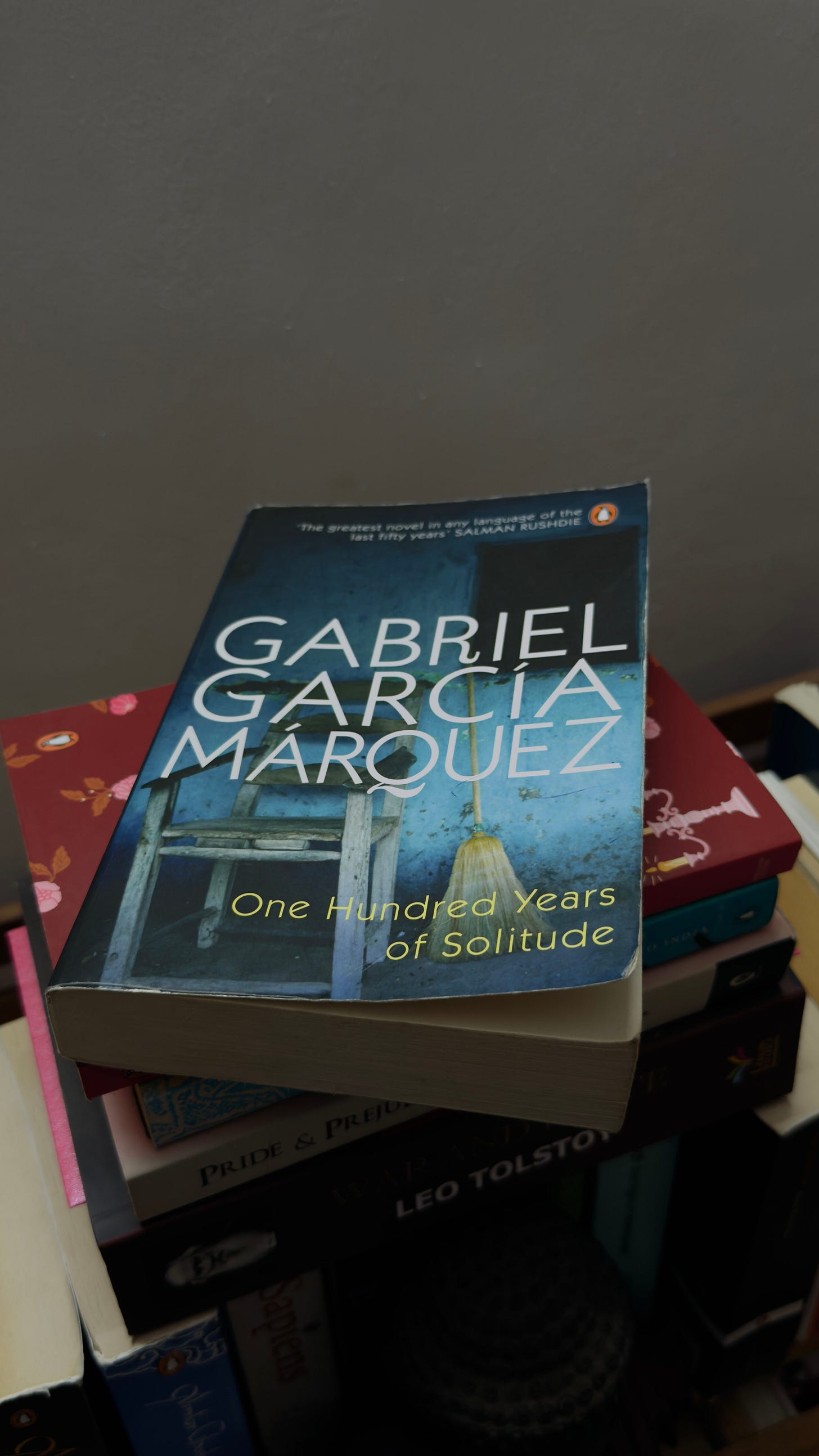📖Book Review: One Hundred Years of Solitude by Gabriel Garcia Marquez
Stapled with complex characters and themes, Garcia Marquez also interrogates fatalism and inevitability of life, blurring the line between free will and fate.
The absence of words is both the hallmark of clarity and the manifestation of lack of it. It is a state where you are befuddled and unsure of your views and ideas, and yet you believe that you have understood something, howsoever big or small that may be. One Hundred Years of Solitude, to me, is that very silence that tiptoes on a thin tightrope between befuddlement and coherence. Not so much because of its dense prose and cyclicities, on which more later, but because of that one question that remains unanswered: What do we take home from here? Because in this book, there is, on one hand, too much to take home, and yet too little on the other.
Written by Gabriel Garcia Marquez, One Hundred Years of Solitude is a literary masterpiece in South American Literature, or to quote Salman Rushdie, “the greatest novel in any language of the last fifty years.” This story is part magical and part real tale of the Buendia clan, stapled across seven generations, stitched together in a complex webbing of incest, feuds, love and violence. Spread across many times and themes, Gabriel Garcia Marquez weaves a complicated tapestry of characters and emotions, exploring themes of love, power and solitude, to name a few.
On Tone & Writing
Garcia’s poetic precision and attention to lush details keep you enmeshed from the inception of the story and accompany you till its culmination. One Hundred Years of Solitude unfolds with a multiplicity of tones- at times tragic and melancholic, and at times joyful and lyrical. Underneath the surface, there is also a tinge of satire working up, interrogating complex social structures and ideas with a detached observation.
“Stapled with complex characters and themes, Garcia Marquez also interrogates fatalism and inevitability of life, blurring the line between free will and choice”
The book is dense with magical realism- a literary genre that seamlessly blends the real and mythical and combines the magical and non-magical. The author uses a variety of writing styles, employing irony, humour, fatalism, and descriptive and metaphorical language to offer a texture that gives it a sense of ambiguity and certainty simultaneously.
Themes & Other Things
One Hundred Years of Solitude navigates a wide array of themes, such as imperialism and clashes between states and their subordinate units, cyclicity of time and history and futility of extremist political ideologies during wars and social tensions.
Marquez also explores pride and vanity, the all-consuming and all-erasing nature of time and its relation to memory and solitude. Stapled with complex characters and themes, Garcia Marquez also interrogates fatalism and inevitability of life, blurring the line between free will and fate.
Furthermore, the incontestable fact that a character is more than just one thing or personality echoes throughout the story. Across seven generations of the Buendia clan, we come across women who on one part can be called staunch feminists but unapologetically patriarchal and equally regressive on the other, and men who balance themselves between docility and brutality as if they were walking on a tightrope.
In a near perfect act of playing with almost everything- time, language and memory- One Hundred Years of Solitude is a must read for all lovers of literature.




